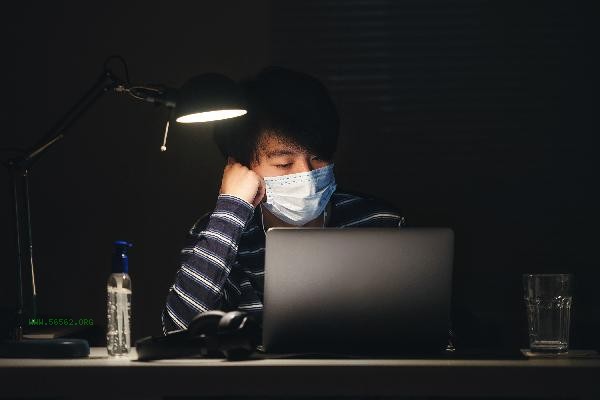Long term staying up late can lead to hair loss, mainly due to hormonal imbalances, blocked blood circulation, and damage to scalp health. Improvements can be made through adjusting daily routines, nutritional supplements, hair care, and other aspects. In severe cases, timely medical attention should be sought.

1 Effects and Solutions of Hormonal Disorders
Long term staying up late can disrupt the body's biological clock, leading to endocrine system disorders. For example, insufficient sleep can inhibit the secretion of melatonin, which affects the growth cycle of hair. At the same time, staying up late can easily lead to an increase in the stress hormone cortisol, which can directly damage hair follicle cells, causing hair to enter the resting period too early and ultimately leading to hair loss. Adjusting daily routine is the primary measure to address hormonal imbalances, ensuring 7-8 hours of regular sleep every day. Meditation and moderate exercise such as jogging and yoga can also be used to relieve stress and promote endocrine balance.
2 Effects and measures of blood circulation obstruction
Staying up late can reduce the blood supply to the scalp, prevent hair follicles from receiving sufficient nutritional support, and make hair prone to dryness, splitting, and even shedding. To improve blood circulation, regular scalp massage can be performed, especially when washing hair, gently massage the scalp with fingertips in a circular motion, which can help improve local blood and oxygen supply. At the same time, increasing the frequency of exercise appropriately, such as brisk walking for 30 minutes every day, can not only improve blood supply throughout the body, but also enhance physical fitness to resist sub-health problems caused by staying up late.

3 Causes and care methods of scalp health damage
Staying up late may also lead to excessive sebum secretion, which can easily cause pore blockage, worsen scalp environment, and further accelerate hair loss problems. Use gentle shampoo products in daily life to avoid excessive cleaning and damage to the scalp barrier. It is recommended to use scalp care essence or deep cleaning product once a week to help maintain the water oil balance of the scalp. At the same time, regularly changing pillowcases and reducing the frequency of dyeing and perming hair can also contribute to the healthy repair of the scalp.
The role of dietary regulation
Diet is also an important link in improving hair loss. Long term staying up late can easily lead to the loss of certain key nutrients, such as protein, B vitamins, zinc, and iron. You can consume more foods rich in these nutrients, such as eggs, lean meat, nuts, spinach, carrots, etc. Drinking plenty of water to avoid dry scalp and avoiding junk food that is too sweet or oily can also help alleviate hair loss problems. If the symptoms of hair loss are severe, it is recommended to seek timely help from a dermatologist or hair specialist to check for the presence of androgenic alopecia or other diseases, in order to take medication treatment such as topical minoxidil, hair growth tincture, or physical therapy such as laser hair growth and scalp injection of growth factors. Long term hair loss caused by staying up late requires comprehensive adjustment from multiple aspects such as lifestyle habits, scalp care, and nutritional supplementation, and targeted measures should be taken according to the causes. Regular sleep is the most fundamental improvement method, while also emphasizing scientific hair care. If the self-regulation effect is limited, seek medical attention as soon as possible.






Comments (0)
Leave a Comment
No comments yet
Be the first to share your thoughts!